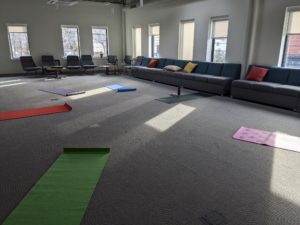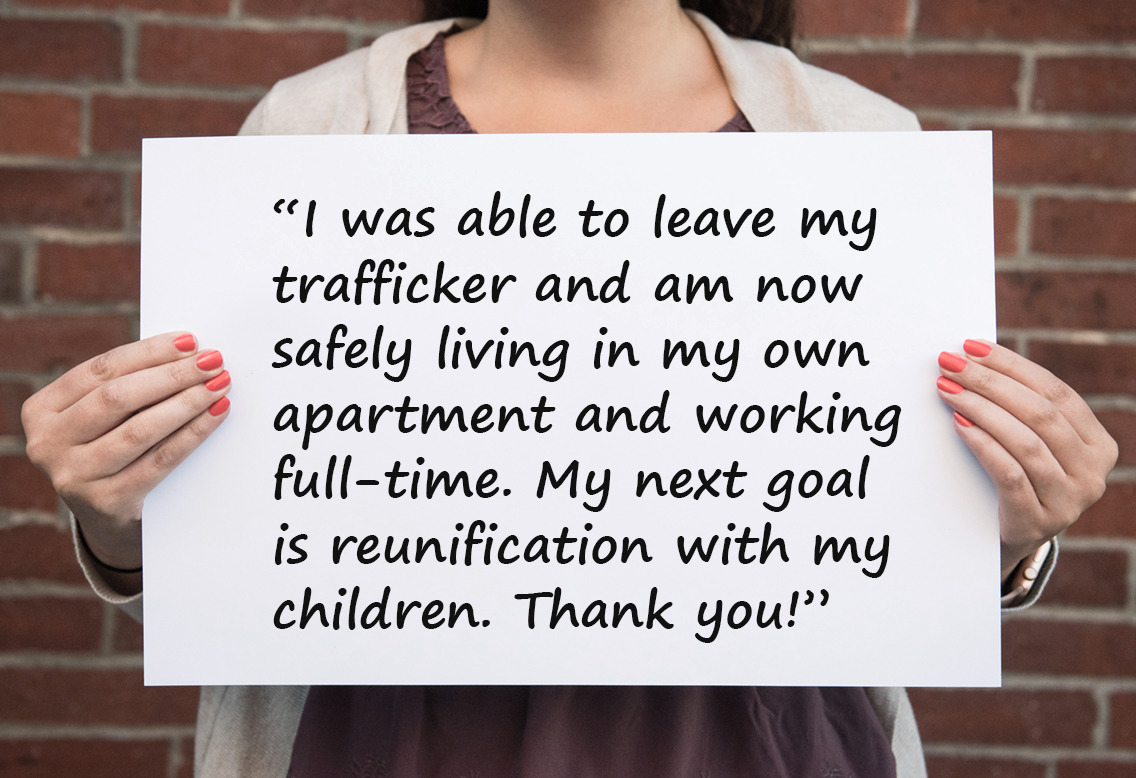Throughout Maine, children and adults of all genders, ages, and races are forced by sexual, physical, and psychological coercion or violence to do all kinds of work, including farm labor, domestic service, sex work, and restaurant and hospitality service. This is human trafficking, a crime of exploitation that can and does impact every community. In Maine, sex and labor trafficking occur across the state, from hotels and restaurants in Portland to blueberry and Christmas tree farms in the rural north. January is Human Trafficking Awareness Month, a time to educate communities about this issue and support survivors on their path toward recovery, healing, and justice.
Because traffickers target people’s vulnerabilities, people without access to basic needs like housing, food, employment, education, and healthcare are at a higher risk of being trafficked, as are people with substance use disorder. Exploiting these vulnerabilities, traffickers use shelter, food, and substances to lure people into a trafficking situation and to force them to stay. Often, victims feel their traffickers are the only ones who can provide them with the basic resources they need to survive. When survivors come to Preble Street Anti-Trafficking Services (ATS) for support, the first thing they ask for is not legal assistance, it’s a safe and stable place to stay.
While trafficking can, and does, happen to people of all races, due to unjust, systemic racism in our country, Black people, Indigenous people, and People of Color (BIPOC) are disproportionately impacted by homelessness, hunger, and poverty, and thus, trafficking. “Trafficking is not the result of a few bad employers or abusive individuals. It is the result of a systemic failure. It is part of the enduring legacy of systemic racism in the United States,” said Jean Bruggeman, Executive Director of Freedom Network USA at the opening of the Preble Street Healing Center last year. “The industries in which trafficking are most pervasive — agriculture and domestic work — are those that relied on formerly enslaved people and were therefore purposefully excluded from federal labor protections. As our labor laws have developed and expanded, they continue to concentrate power in the hands of the elite, leaving low wage workers who are disproportionately Black, Brown and immigrant in a precarious position.”
Preble Street first became involved in anti-trafficking work in 2010 when youth arrived at the Teen Center after escaping perpetrators who were using violence and drugs to force them into sex work or labor trafficking. Working in collaboration with healthcare providers; local, state, and federal law enforcement; local organizations like the Farmworkers Resource Network and Immigrant Legal Advocacy Project; and national agencies like Freedom Network USA and HEAL Trafficking, we are determined to support survivors in reclaiming their lives and to do more to end human trafficking.
Last year, we expanded our Anti-Trafficking Services program and opened the Preble Street Healing Center to provide comprehensive services for survivors of human trafficking, including:

- Case management services and trauma therapy
- Connection to medical services and mental health counseling
- On-site services from partner agencies including employment, legal services, group therapy, skills building, and ESL classes
- A training center for workshops focused on best practices for human trafficking responses
- Activities such as yoga, art therapy, and writing
Preble Street ATS caseworkers provide trauma-informed, client-centered support and empower survivors of human trafficking to make the choices that work best for them and reclaim their lives on their own terms.
To best support survivors, we must respect their individual agency and open the door to resources that can help them leave their trafficking situations when they’re ready. But to end human trafficking we must address the root causes and broken systems that put our neighbors at risk of abuse and exploitation in the first place. When we work to bring an end to homelessness, hunger, poverty, and systemic racism, we are also working to address the injustice of human trafficking.

